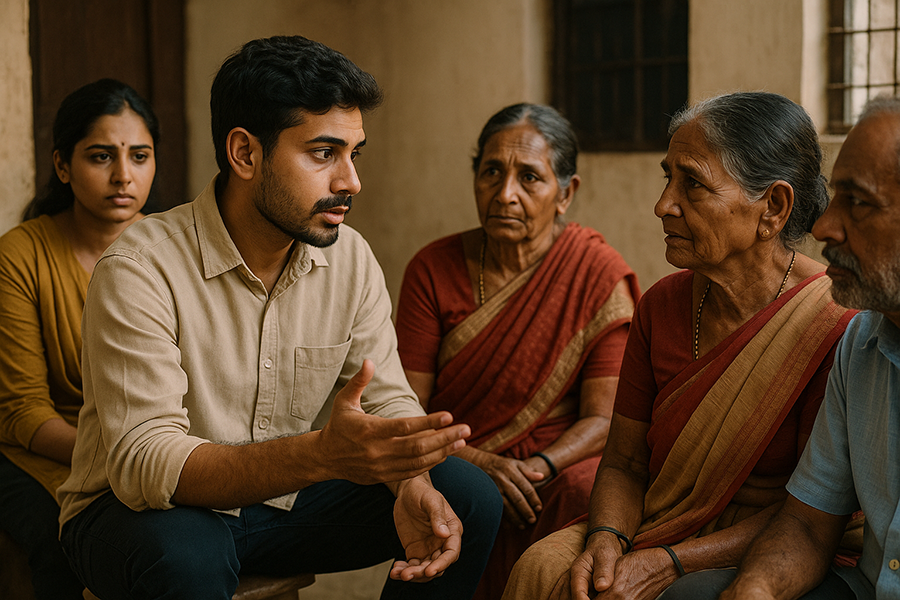From a very early age, we are taught to break problems apart to study and decipher the world around us. The conventional thinking on complexity and chaos steers our minds towards parts and elements involved in the system and fosters a loss of rumination concerning linkages and influences within and between the components, and the system. It is understandably difficult when we consider that the interactions within and outside the system are constantly changing. Systems thinking is a discipline that can be used to throw light on the invisible factors governing the behavior of a system. The lectures on systems thinking and the case studies we have been working on at ISDM reinforced the importance of having this in place while approaching a development issue. Systems thinking succors in the deconstruction of a complex system and identifying the web of interdependence and adaptivity of the components and the system on the whole. The approach gives a conceptual framework to think about issues in a holistic and collaborative manner.
As development professionals, irrespective of whether the interventions are at the local level or macro level, it is important to understand a wide range of social, economic, political, ecological, and even physiological systems. Even a small action can have a butterfly effect where effect of consequences could be irreversible. For instance, there might be a tribal community who have been victims of land acquisition for a long time. There might be issues with regards to the privatization of lands or encroachment of their area. This might be a trigger for them to fight for their rights demanding for justice, and the government, after trying all means possible, could consider giving them self autonomy. Now this might have seemed to address one of the problems, but say if that particular tribal community is patriarchal, then there would be their own communitarian laws, no voice for women, no representation of women on decision making or no rights guaranteed for them. This might lead to deprivation of basic human rights and also in turn upset the development of the future generations. Any intervention of the government at a later stage to address these issues might become onerous. Dietrich Dörner writes on effective problem solving: “If we want to solve problems effectively…we must keep in mind not only many features but also the influences among them. Complexity is the label we will give to the existence of many interdependent variables in a given system. The more variables and the greater their interdependence, the greater the system’s complexity. Great complexity places high demands on a planner’s capacity to gather information, integrate findings, and design effective actions. The links between the variables oblige us to attend to a great many features simultaneously, and that, concomitantly, makes it impossible for us to undertake only one action in a complex system”. The concept of systems thinking allows us to constantly rethink and hone our development models and rejig the components within the supra or sub-system. By adopting a model that could separate direct and adaptive challenges, and deal with layers of perspectives involved in systems, one could cope with the complexities hindering developmental approaches.
In today’s world, most of the problems that we are confronted with are repercussions of our inability to grasp the nature of convoluted systems that are present. Systems thinking along with other learning disciplines of personal mastery, social emotional intelligence and collaboration helps us to have a broader perspective, to look at the underlying structures, patterns and events, rather than just the events themselves, and also helps us to identify how to change them effectively.




